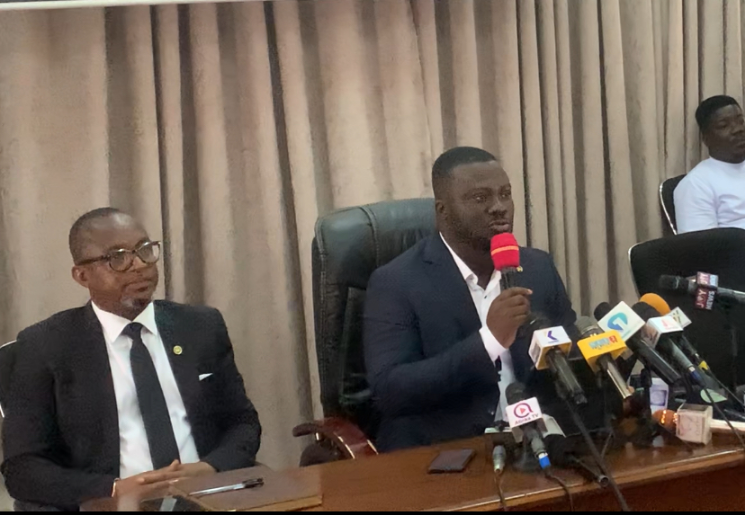26-Year-Old Ghanaian Man Seeks Asylum in Canada Over Land Dispute Threats

Julius Boateng Osei, a 26-year-old Ghanaian national, has filed for asylum in Canada, citing grave threats to his life stemming from a prolonged and violent land dispute in his home country. The dispute, which has involved powerful traditional authorities and a complex legal battle, escalated to life-threatening levels, forcing Osei to seek safety abroad.
Background of the Land Dispute
The dispute revolves around a family-managed piece of land in Kumasi, Ashanti Region, once overseen by Osei’s grandfather, Kofi Atupim. The land, owned by Nana Otuo Siriboe II, a prominent chief from Juaben, was entrusted to Atupim and later managed by his son, Michael Agyemang, who is also Osei’s uncle.
In recent years, residents of a neighboring town accused Agyemang of encroaching on their land, sparking a fierce dispute. The matter was escalated to Asantehene Otumfuo Osei Tutu II, who mediated the conflict and issued a ruling. Despite the Asantehene’s intervention, tensions remained high, and the opposing party refused to accept the decision.
The legal battle continued in the Ghanaian court system, where proceedings were initiated. Osei has provided court documents and legal motions as evidence to support his family’s rightful ownership of the land.
Death Threats and Escape to Canada
Amid ongoing hostilities, death threats against Osei and his family became more frequent. According to Osei, members of the opposing faction threatened to harm or kill key family members, including him.
“The situation became unbearable. Despite legal proceedings and traditional mediation, the threats never stopped. I had no choice but to flee for my life,” Osei said in a statement.
On April 10, 2024, Osei arrived in Canada, initially intending to pursue his studies. However, due to the continued threats and unresolved nature of the land dispute, Osei has now filed for asylum protection in Canada, fearing that returning to Ghana would expose him to serious harm or even death.
Asylum Claim and Legal Considerations
Under Canada’s refugee protection laws, individuals may seek asylum if they face persecution, violence, or threats to their lives in their home country. The evidence supporting Osei’s claim includes:
- Court motions and legal proceedings that establish his family’s involvement in the land dispute.
- Mediation records from Asantehene Otumfuo Osei Tutu II, confirming the seriousness of the matter.
- Documented threats, including testimonies and messages directed at Osei and his family.
The Canadian immigration authorities will carefully review this evidence to determine whether Osei qualifies for protection under Canada’s refugee laws.
What Happens Next?
If granted asylum, Osei will be given refugee status, allowing him to remain in Canada and apply for permanent residency. If his request is denied, he could face deportation, putting him at grave risk of harm or death if he returns to Ghana.
This case highlights the broader issue of land disputes in Ghana, where conflicts often escalate into violent confrontations, partly due to weak enforcement of both traditional and legal rulings. The Osei case is a stark reminder of the dangers of unresolved land conflicts and their potential to cause devastating outcomes for families.
Conclusion
As Osei’s asylum process unfolds, human rights organizations and legal experts are closely monitoring the case. His situation underscores the volatile nature of land ownership disputes in Ghana, where conflicts often turn deadly despite efforts from both traditional authorities and legal systems to mediate.
Osei remains hopeful that his asylum request will be approved, allowing him to escape the danger and persecution he faces in his home country.
#LandDispute #AsylumCase #CanadaRefugeeProtection #HumanRights





